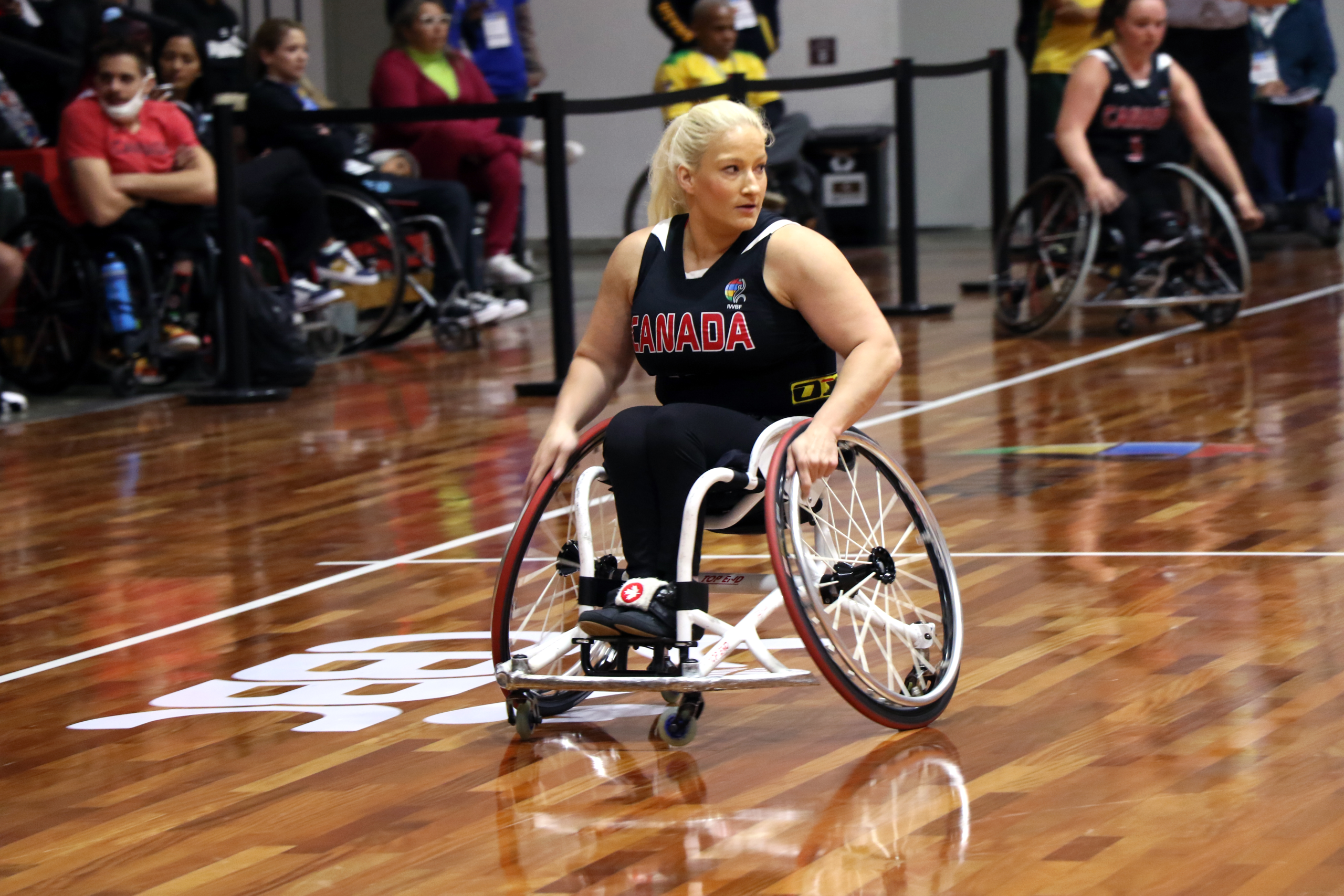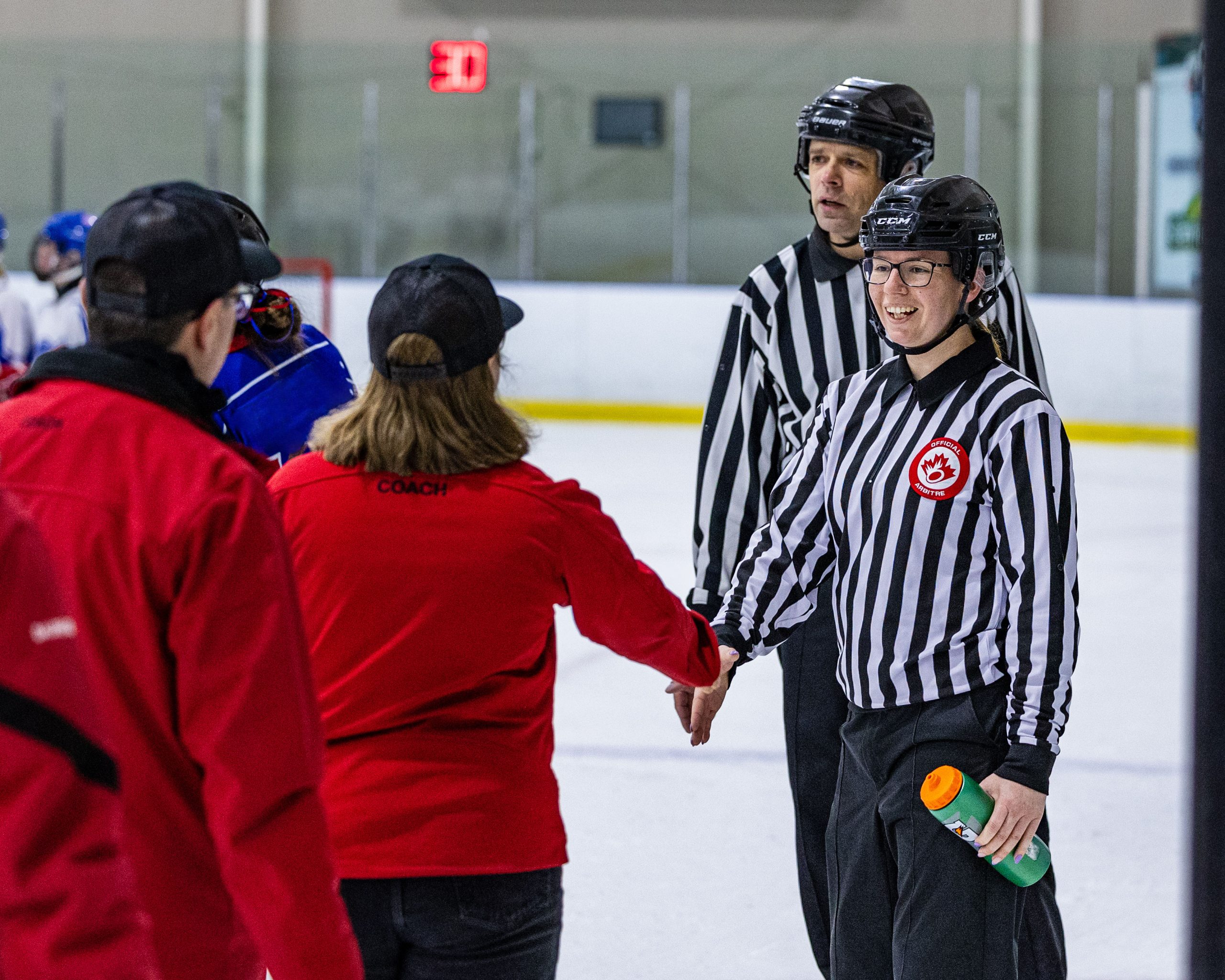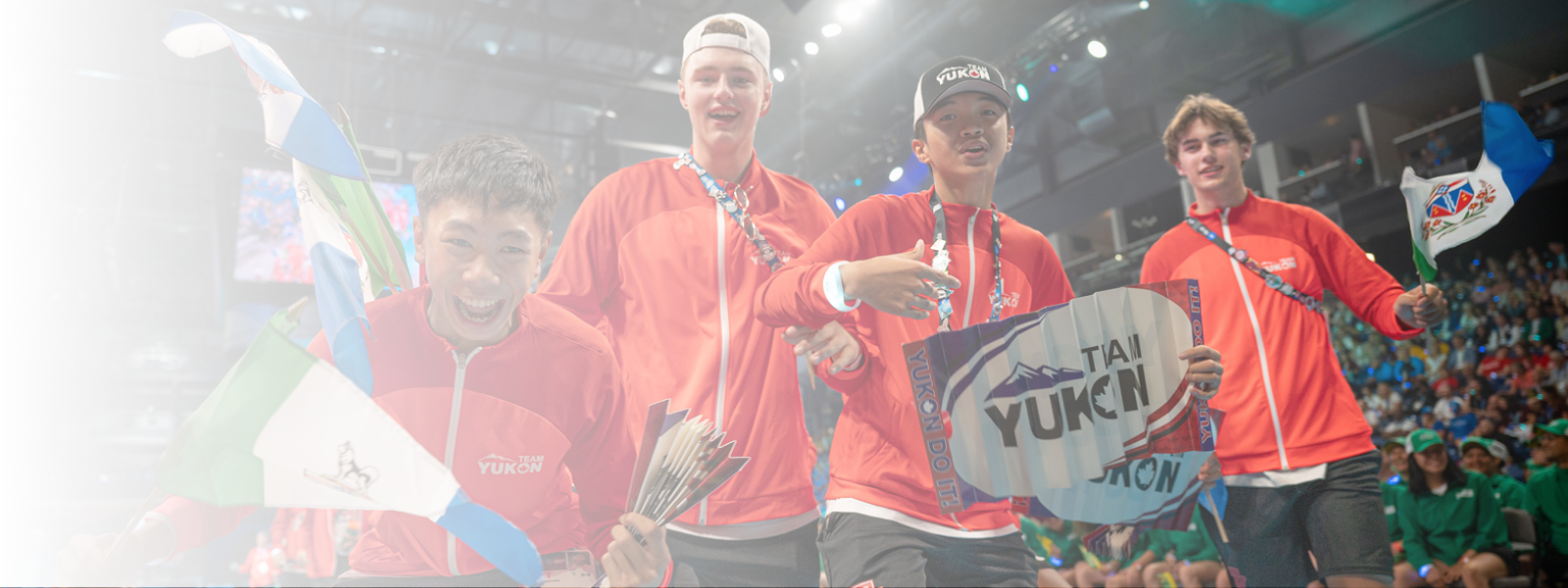Delivering the vision for sport in Canada: governments, organizations, people, and places
ACHIEVING OUR VISION REQUIRES MANY COMPONENTS TO WORK TOGETHER SEAMLESSLY TO DELIVER VALUES-DRIVEN SPORT.
Sport must always be focused on the good of the participants involved. How do we enable everyone to grow, excel and achieve wellbeing through sport? It begins with people: those who want to participate, and those who support participation by working as leaders within schools, organizations and governments. Next there must be places: facilities and spaces where sport can happen.

For Canada to be a country where everyone can enjoy sport and pursue competitive goals, we must ensure that all levels of sport are encouraged and supported, now and in the future. Organizations that deliver sport in Canada should be sufficiently funded, resourced, and provided with the tools and guidance to plan for the future, foster sport environments that are positive, safe, and inclusive, and engage in continuous learning and reflection for improvement. A proactive and positive culture is needed to move sport in Canada forward for the duration of the Policy.
Sustainable progress goes beyond resources and capacity. It requires education, awareness, innovation, modernization, and respect for the environment. It means embracing and celebrating diversity and culture in all aspects of sport. To achieve the vision, sport needs to be forward-thinking, reflect the people and communities of Canada, and demonstrate integrity in all that we do.
With this in mind, and participants at the centre of the Policy, we need to focus attention on those who can help deliver the Policy, such as governments, sport and partner organizations, sport leaders; and the places and spaces where sport occurs.
Governments
GOVERNMENTS RECOGNIZE THAT SPORT IS A PUBLIC GOOD WORTHY OF SUPPORT.
- To provide support, governments take on three main roles:
- By setting policies and collaborating together, governments encourage sport organizations to deliver programs inspired by the values of the Canadian Sport Policy.
- By directing funding support according to these policies, governments influence sport delivery, particularly at federal and provincial-territorial levels.
- Governments convene sport leaders and organizations, academics and experts, public servants, and others to shape policy, manage support, and collaborate to set priorities.
- Each government acts according to its jurisdiction and in relation to the needs specific to its population and sport environment, resulting in a flexible and responsive approach to setting priorities and advancing the goals and areas for action within this Policy.
Sport and Partner Organizations
THE DESIGN AND DELIVERY OF SPORT PROGRAMMING IS SUPPORTED BY A COLLABORATIVE COMMUNITY OF ORGANIZATIONS AND AGENCIES.
- Sport organizations include non-profit and for-profit, public- and privately funded, incorporated and unincorporated organizations and agencies. This includes National Multisport Service Organizations (MSOs), National Sport Organizations (NSOs), Provincial and Territorial Sport Organizations (PTSOs), Provincial and Territorial Aboriginal Sport Bodies (PTASBs), and community sport, multi-sport, school-sport, and cultural-sport organizations as well as professional sport businesses and academies. It also includes the broader set of organizations that include sport, recreation and active living in their roles and mandates.
- As we expect more of sport, we expect more of sport organizations. The future of sport depends on public trust and confidence in sport organizations. The values put forward in this Policy should live in every policy, strategy, action plan, program, and every decision.
- Integrity on and off the field of play at all levels of sport, from grassroots clubs to national team programs, is essential. It builds confidence in the people and organizations who participate in and deliver sport. Enhancing governance and collaboration across MSOs, NSOs, PTSOs, and other organizations that deliver sport in Canada, from community clubs to professional organizations, is needed.
- Sport organizations provide opportunities for people in Canada to participate in sport. Open, transparent, democratic governance and responsible management that puts the needs of participants first is essential.
- Both non-profit and for-profit organizations delivering sport, including professional sport, must demonstrate their commitment to safety, ethical conduct, and respect for all participants.
- Sport is vulnerable to sustainability challenges, including adjustments to weather and environmental change. As sport grows increasingly sophisticated –technically and in terms of management, information systems, and relevant legislation and standards – innovations will need to help organizations adapt to rapidly changing environments.
- Resources are a major challenge for non-profit sport organizations, especially trained, dedicated leaders and access to spaces and places for programs. In performance sport there are additional needs for more specialized human and technical resources. In sport for people living with disabilities, there are barriers to accessing adaptive equipment and facilities. At the same time, the rising cost of sport means access to programs can be limited by ability to pay. Aspiring to safer, more ethical, and more inclusive sport means finding ways to help sport organizations overcome basic resource challenges and help more people play.
Sport Leaders

SPORT LEADERS, MANY OF THEM VOLUNTEERS, INCLUDE COACHES, INSTRUCTORS, OFFICIALS AND REFEREES, ADMINISTRATORS, OTHER SPECIALISTS, AND ATHLETES THEMSELVES. THEY WORK TOGETHER TO BUILD SPORT.
There are many different people and organizations who deliver sport in Canada. For everyone to work together, education and messaging are needed. This includes coordinated efforts to build capacity and empower everyone to foster safe, welcoming, and inclusive environments.
- Canada‘s non-profit voluntary sector is among the strongest in the world, and sport and recreation is the largest group within that sector. Many of the positive social outcomes of sport, including community pride and civic participation, come from the personal contributions so many of us make as sport volunteers.
- Volunteers are required to operate at higher standards and face more challenges than ever, including abuse directed toward coaches, officials, and referees. To keep sport strong and participants safe, we need to respect and support sport volunteers. We should work to ensure professional staff are well-trained and properly compensated. Improving and expanding sport leader education and development is a key step.
- The voices of athletes must be heard and respected and athletes empowered to take greater leadership. Building diversity in participation expands the pool of participants moving into competition and high performance, and those transitioning into progressive leadership roles.
- For everyone to have opportunities in sport, everyone needs to be represented in sport. This requires intentional efforts to remove barriers at all levels of sport, and to all roles in sport.
Places and Spaces for Sport
ALL SPORT IS PRACTICED AND PLAYED IN PLACES AND SPACES. FOR SPORT TO FULFILL ITS POTENTIAL, WE NEED MORE PLACES TO PLAY.
- Most gyms, pools, and arenas in Canada, as well as outdoor facilities including fields, greens, diamonds, pitches, and tracks, are publicly owned, built and maintained by municipalities and regional school boards. Rural and remote areas face challenges to developing and maintaining infrastructure. Protecting the investment in sport and recreation facilities in communities across the country is critical.
- The economic benefit of sport on communities and Canada as a whole is significant. For these benefits to be realized, investments need to be made.
- Spaces used by athletes pursuing performance goals often meet higher technical standards, or are single-purpose facilities (e.g., velodromes). Such facilities are scarce, valuable, and need continued investment.
- Decisions about which groups can use spaces, and at what cost, exert a powerful influence on access to sport. Spaces need to be accessible, for persons of all abilities, affordable, and must meet the needs of participants to prevent individuals and groups from being marginalized.
- Event hosting and the creation of new sport facilities, as well as the ongoing utilization and upgrading of existing facilities, can yield significant economic returns and other benefits to the communities.
- Canada is recognized for the diversity and beauty of its natural environment. Evolving weather and environments are a significant threat to the safety and availability of outdoor sport opportunities. Research is necessary to determine and minimize the impacts on sport throughout Canada. All participants are stewards of a sustainable sport system that needs to be responsive to these changes.
